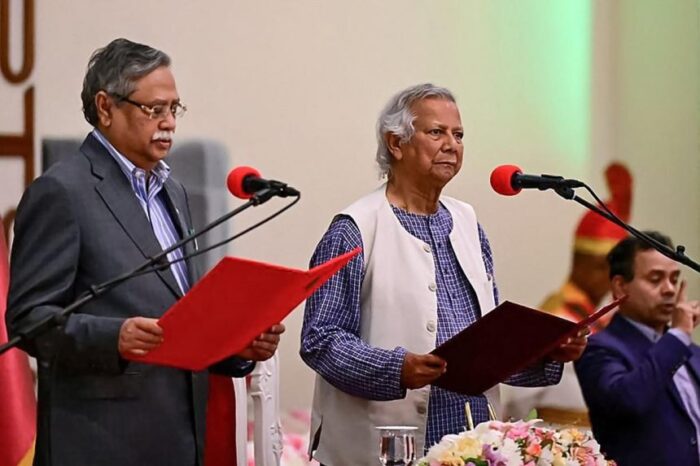
The military coup in Myanmar, the fall of Afghanistan to the Taliban, widespread protests in Sri Lanka, and the recent unrest in Bangladesh. The unfortunate developments in the neighbouring countries have significant implications for India, given its geographical proximity and strategic interests in the region.
The rapid takeover of Afghanistan by the Taliban in August 2021 marked a significant shift in the regional power dynamics. The collapse of the Afghan government raised concerns about the resurgence of terrorist groups, human rights violations, and the spread of extremism. The situation poses a direct threat to India’s national security, as extremist groups could gain a foothold in the region, potentially leading to cross-border terrorism.
In 2022, Sri Lanka, faced a severe economic crisis, with shortages of essential goods, fuel, and foreign exchange reserves. This led to widespread public protests and political instability. For India, the economic turmoil and potential for a humanitarian crisis could lead to an influx of refugees into India.
Most recently, Bangladesh is experiencing significant political unrest following the resignation of Prime Minister Sheikh Hasina. Hasina fled after nationwide protests that began in July against a quota system for government jobs that critics said favoured people with connections to her party. But the demonstrations soon grew into a bigger challenge for Hasina’s 15-year rule as more than 300 people, including students, were killed during spiralling violence.
The protests, fuelled by economic issues and political dissatisfaction, have led to a volatile situation. The targeting of minority communities and the involvement of radical groups add to the complexity of the crisis. For India, the instability in Bangladesh poses a threat from the eastern front, potentially leading to increased border tensions and security challenges. Sheikh Hasina’s ouster will not only have a colossal effect on Bangladesh but will also rattle the geopolitics of its subcontinent, including
India. Bangladesh has been a key ally to India since Hasina came to power in 2009. With her exit and a new military-backed interim government in place, not just security but trade ties could also get affected, restricting the movement of people and goods between the two countries.
India is worried about the possibility of rise in extremism in Bangladesh. Some of the radical organisations in Bangladesh have links with the Lashkar-e-Taiba (LeT) other terrorist outfits based in Pakistan as well as with the Pakistan Army’s spy agency Inter-Services Intelligence (ISI), which might like to expand its activities.
The unrest has already impacted the trade and commerce since Bangladesh is India’s biggest partner in the subcontinent, and India is Bangladesh’s second biggest partner in Asia after China. Their total bilateral trade amounted to $13 billion in the financial year 2023-24, according to the Union Ministry of Commerce. Bangladesh is the biggest export destination for India’s cotton, accounting for 34.9% of India’s total cotton exports (some $2.4 billion in FY24). Other major Indian exports to Bangladesh are petroleum products and cereals. India’s top import from Bangladesh are readymade garments, amounting to $391 million in FY24. In recent years, Bangladesh has emerged as a major global hub for textiles.
The Indian garment and knitted fabric sector is witnessing a bit of uncertainty due to the crisis. Finance Minister Nirmala Sitharaman expressed hope that the interim government will settle things “sooner rather than later.” Sitharaman added, “I hope that the investments are all safe… it’s too early for me to see what kind of an impact this situation in Bangladesh will have on our economy. I hope that the interim government will settle things sooner rather than later so that both the people of Bangladesh and India can get back to normalcy.”
Amid the uncertainties, there is already a noticeable shift towards alternative manufacturing hubs such as a strategic move by companies to diversify their production bases and reduce dependency on a single market. It observed that Indian textile hub Tirupur, known for its robust textile and apparel manufacturing capabilities, may emerge as a key beneficiary of this shift.
Meanwhile, the Nobel Peace Prize-winning economist Muhammad Yunus has been sworn in as the head of Bangladesh’s interim government. Yunus, 84, took the oath during a ceremony at the presidential palace in Dhaka on Thursday night that was attended by political leaders, civil society leaders, generals and diplomats.
“I will uphold, support and protect the constitution,” Yunus said as he was administered the oath by President Mohammed Shahabuddin, adding that he will perform his duties “sincerely”.
Yunus, who was awarded the 2006 Nobel Peace Prize for his work developing microcredit markets. In his first comments after his arrival, he said at a news briefing that his priority would be to restore order. “Bangladesh is a family. We have to unite it,” Yunus said while flanked by student leaders. “It has immense possibility.”
Prime Minister Narendra Modi offered his “best wishes” to Yunus, saying New Delhi was “committed” to working with neighbouring Dhaka. “My best wishes to Professor Muhammad Yunus on the assumption of his new responsibilities,” Modi wrote on the social media platform X. “India remains committed to working with Bangladesh to fulfil the shared aspirations of both our peoples for peace, security and development.”
My best wishes to Professor Muhammad Yunus on the assumption of his new responsibilities. We hope for an early return to normalcy, ensuring the safety and protection of Hindus and all other minority communities. India remains committed to working with Bangladesh to fulfill the…
— Narendra Modi (@narendramodi) August 8, 2024
Leader of Opposition in Lok Sabha, Rahul Gandhi too tweeted on X
Congratulations to Professor Muhammad Yunus on being sworn in as the head of Bangladesh’s interim government.
A swift restoration of peace and normalcy is the need of the hour.
— Rahul Gandhi (@RahulGandhi) August 8, 2024
On the same note, the United States also welcomed the new interim government in Bangladesh, saying it hoped to work together to advance democracy. “We welcome Dr Yunus’s call for an end to the recent violence and we stand ready to work with the interim government and Dr Yunus as it charts a democratic future for the people of Bangladesh,” said State Department spokesman Matthew Miller.
Yunus has a gargantuan task on his shoulders of stabilising Bangladesh, resolving issues which fanned the protests and make country walk on the development path rather than it becoming a nesting place for the extremists and terrorist organisations.
[the_ad id=”55722″]


















